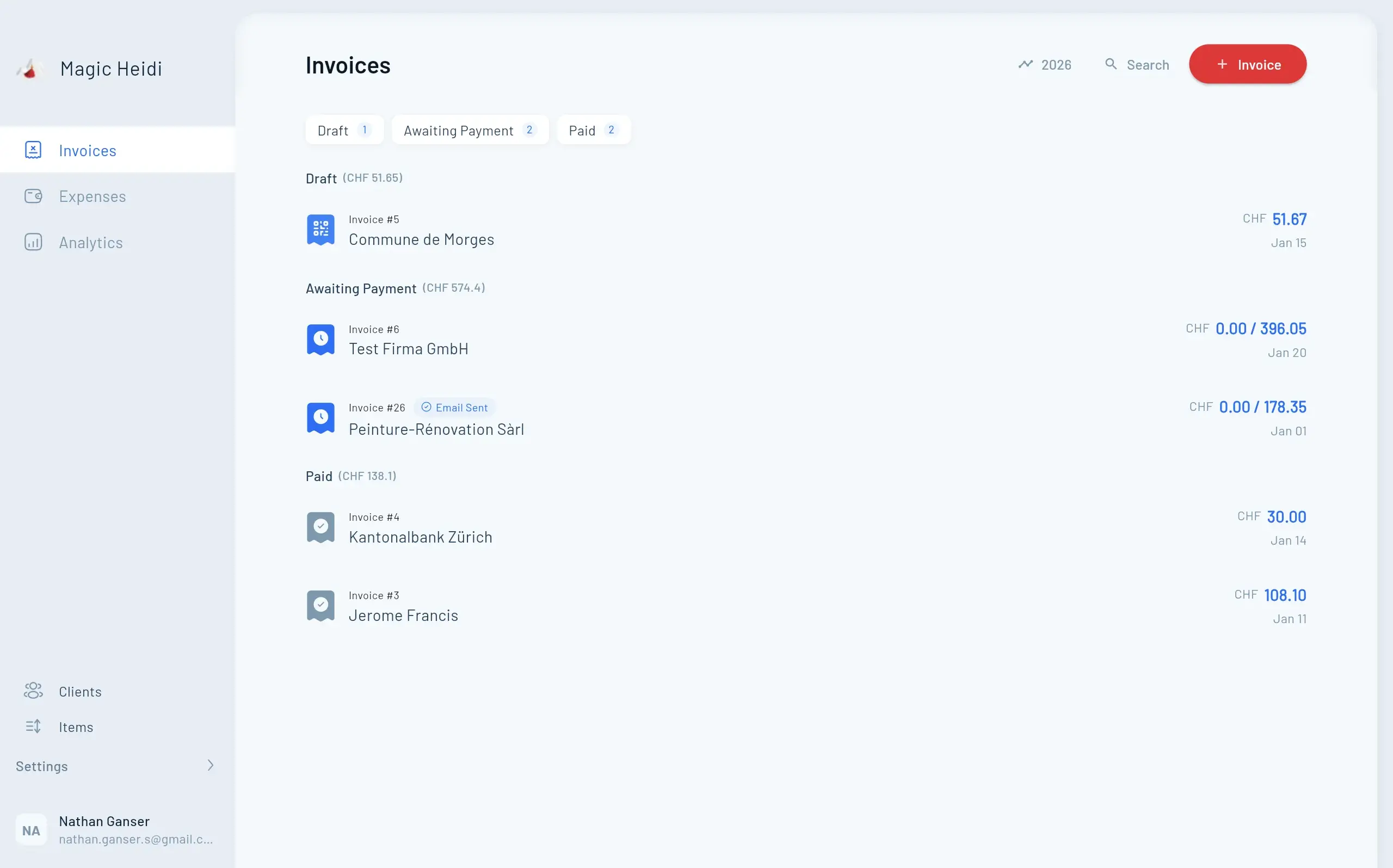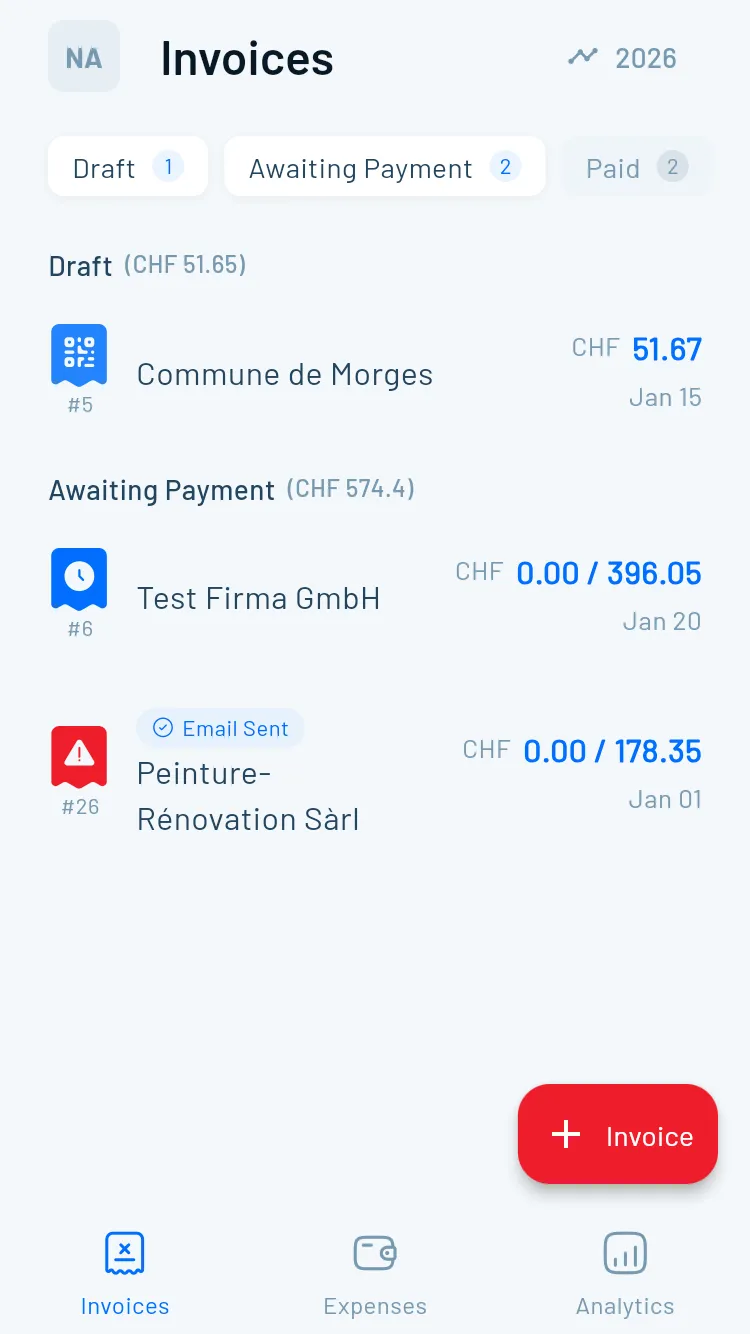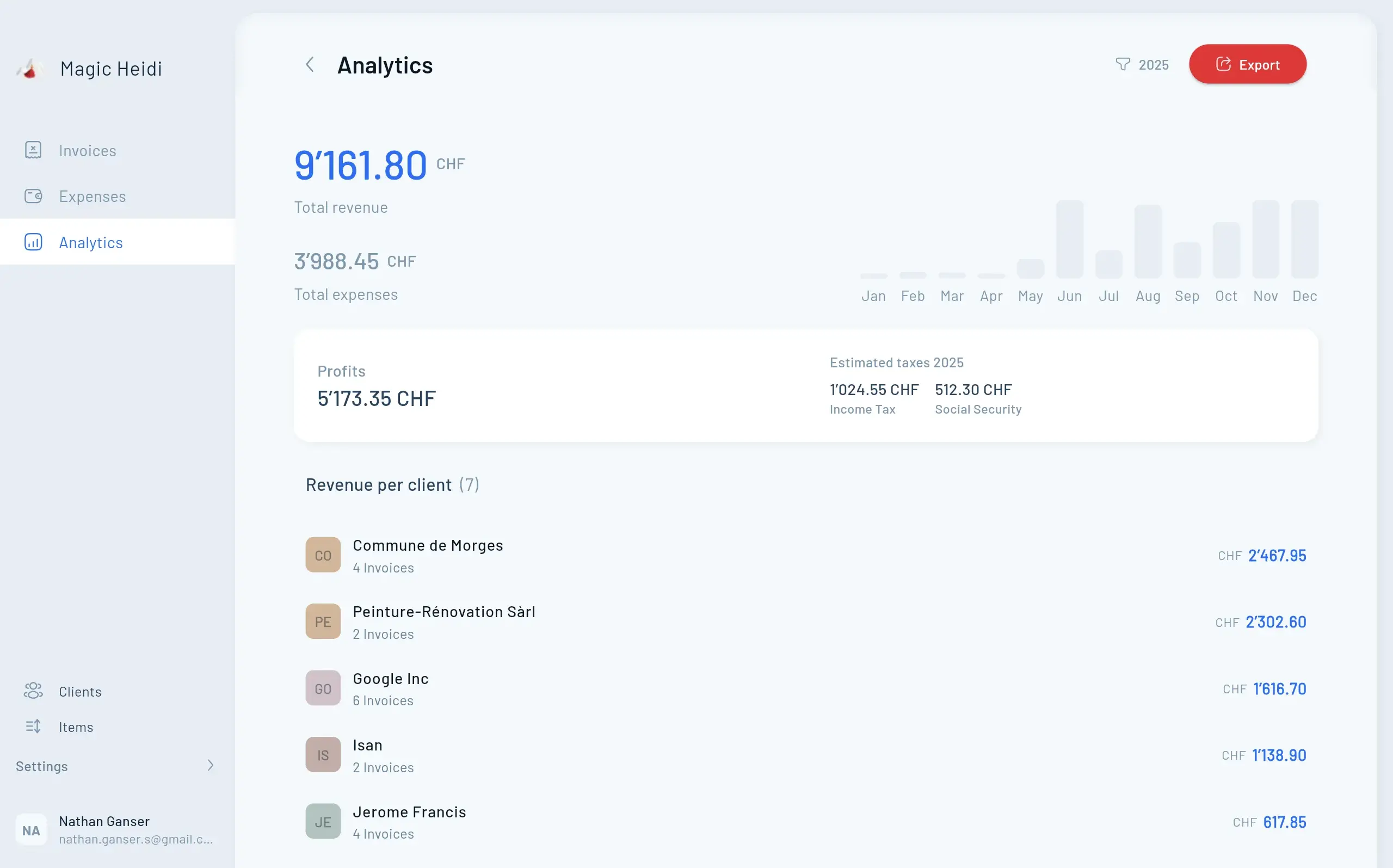Timing: The day after the due date
Email Template - First Reminder:
Subject: Friendly reminder: Invoice #[number] due yesterday
Hi [Client Name],
I hope you're well! I wanted to follow up on invoice #[number]
for [project name], which was due on [date].
I know how busy things can get, so this is just a friendly nudge.
You can pay directly via the QR code on the attached invoice or
transfer to [IBAN].
Let me know if you have any questions or need the invoice resent.
Thanks!
[Your Name]
Success rate: This resolves 40-50% of "late" payments that were simply processing delays.
Timing: If no response after 7 days
Email Template - Second Reminder:
Subject: Second reminder: Invoice #[number] now 7 days overdue
Dear [Client Name],
I'm following up on invoice #[number] (CHF [amount]), which is now
7 days overdue. According to our contract terms and Swiss law,
payment was due on [date].
As of today, late payment interest at 5% per annum
(CHF [daily amount] per day) begins accruing on the outstanding balance.
Please arrange payment within the next 3 business days. If there's
an issue with the invoice or you're experiencing payment difficulties,
let's discuss a solution.
Payment details:
[IBAN]
Reference: [Invoice number]
Best regards,
[Your Name]
Success rate: Another 30% of late payers settle after receiving formal notice of interest charges.
Timing: Stop emailing. Pick up the phone.
Phone Script:
"Hi, this is Name calling about invoice #number from Company Name. It's now two weeks overdue. I've sent two email reminders without response. Can you help me understand what's causing the delay?"
Then listen. Genuinely. There might be a legitimate issue:
- Invoice got lost in their system → Resend immediately
- Approval stuck with someone on vacation → Get alternative approver
- Budget issues → Discuss payment plan
- Dispute about deliverables → Address before it escalates
If they promise payment: Get specifics. "When exactly can I expect the transfer?" Note their name, the date they committed to, and send confirmation email immediately after the call.
Timing: 7 days before Betreibungsamt filing
Email Template - Final Notice:
Subject: FINAL NOTICE: Invoice #[number] - Betreibungsamt proceedings to commence
Dear [Client Name],
Despite multiple reminders (emails on [dates] and phone call on [date]),
invoice #[number] for CHF [amount] remains unpaid after [number] days.
I am giving you 7 final days to settle this invoice before I initiate
formal debt collection proceedings with the Betreibungsamt.
This will result in:
- Additional collection fees (CHF 50-100)
- An entry in your Betreibungsregister (debt collection registry)
- Potential impact on your credit rating and business reputation
I would prefer to resolve this amicably. Please contact me by [specific date]
to arrange immediate payment or discuss a payment plan.
Payment details:
Amount due: CHF [original amount]
Interest accrued: CHF [calculated interest]
Total: CHF [total]
IBAN: [your IBAN]
This is my final notice before legal action.
[Your Name]
[Your Contact Information]
Success rate: The prospect of Betreibungsregister entry motivates 60% of remaining holdouts to pay or negotiate.





